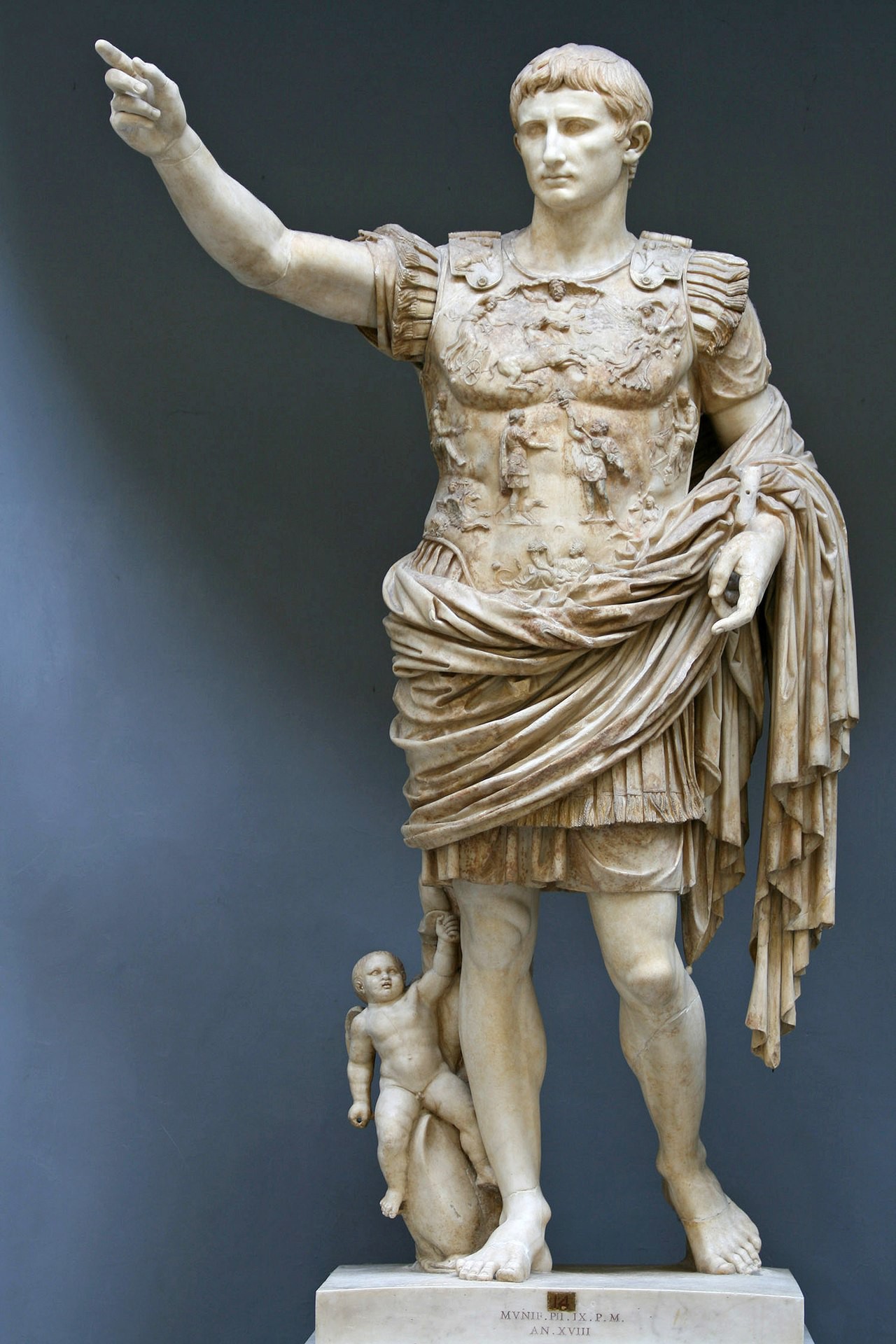72 ūllus, ūll-a, ūllumany
“Notice that ūllus and nūllus form a pair of opposites: ūllus is ‘any’, and nūllus (ne [not] + ūllus), is ‘not any.”
I hate and I love with my whole heart, and I do not know why. (8) “’Why’ is quārē.” Come on, come on, force the enemy to yield to necessity. (9)
I am oppressed by a harsh desire, the greatest pain. (10)
Carry me home safe across the many waves of the sea. (11)
If fear will come into my heart, I will throw my sword to the ground and flee. (12) Ambition compels many (men) to become false and to have one (thing) in the chest, another on the tongue. (13)
Ā mē amābitur nūlla. (14)
- The Possessive Adjective suus, su-a, suum
“One adjective, suus, a, um has a meaning that changes depending on the subject of the sentence.
THIS ADJECTIVE SAYS THAT THE NOUN IT MODIFIES BELONGS TO THE SUBJECT
OF THE SENTENCE. If the subject of a sentence is a man, its meaning is ‘his own’; if a woman, ‘her own’; if a thing, ‘its own’. And if the subject is plural, it means ‘their own’. The gender of the ending matches the gender of the noun that it modifies (the person or thing possessed).”
suus, su-a, suumhis own, her own, its own, their own
The possessive adjective suus, a, um Examples of use (D)
Consul urbem suam videt.The consul sees his own city. The girl prepares her own father.Puella patrem suum parat.
“It may seem counterintuitive to translate suam as ‘his own’ and suum as ‘her own’ in the first two sentences because the gender looks wrong. So remember: with suus, the ending matching the gender (as well as case and number) of the noun it modifies, while the subject determines whether su– means ‘his’ or ‘her’ or ‘its’ or ‘their own’.”
Eī geminī bellum suum gerent. (15)
Corpus suam vītam habet. (16)
Without his own soldiers the leader will need to yield. (17)
The goddess was placing part of her own hand in the water. (18)
As soon as she said that, a large group of men exited the bathhouse. They were a gang of sleek- looking youths, led by one figure who must have been a knight, since he wore a toga with a thin purple stripe. He seemed to be in his thirties and was talking excitedly to two of his companions when all of the sudden he stopped and put his hands over his head, reacting to the sight of Hostia performing across the street.
“That is Sextus Propertius,” Latinitas shouted in my ear – all of the men from the bathhouse and all of the women in the temple began making a ruckus, gesturing and yelling at the other group. “He’s a knight from Assisi everyone is talking about, because he has been having an on-again,
off-again affair with Hostia. To capitalize on the publicity, he published the love poems he wrote for her in a book; it’s very popular and Propertius’ friends know much of it by heart.”
Propertius gestured with his hands for everyone to be quiet and Hostia did the same. There followed a series of speeches between the two which went by very quickly and were hard for me to understand, although there were lots of tū’s and amōrēs and something about dōna, gifts.
Hostia had her arms crossed when Propertius spoke and looked at the ground, while Propertius walked in circles and gesticulated while she spoke. They were just like two actors on a stage, and a large mob of passersby gathered to hear and watch them.
At the end, Propertius grabbed a handful of plums and cherries from a street vendor and bounded across the street; getting down on his knees, he offered them to her as if she was some queen. Hostia stared at him for a second, then carefully laid her foot on his forehead and pushed him back; Propertius, over-acting, tumbled backward, and the fruit went flying. Hostia then
marched into the temple with the priests and three of her friends, and the doors slammed shut behind her.
Propertius’ male friends exclaimed as if they had just seen a star football player miss a crucial free kick. He jogged back to join them, then climbed on top of a bronze statue of some old military hero, where he gave a dramatic recitation of the first poem from his collection. The woman he calls ‘Cynthia’ is, of course, Hostia. See if you can find the Latin word that corresponds to each part of the English translation in italics:
Cynthia prīma suīs miserum mē cēpit ocellīs, contāctum nūllīs ante cupīdinibus.
Cynthia first captured miserable me with her little eyes, (19)
(me), touched by no desires previously.
Tum mihi cōnstantis dēiēcit lūmina fastūs et caput impositīs pressit Amor pedibus, dōnec mē docuit castās ōdisse puellās, improbus, et nūllō vīvere cōnsiliō.
Then Love threw down the lights/eyes of my constant pride and pushed down my head with feet imposed,
until he taught me to hate innocent girls, naughty (Love), and to live with no plan.
Ei mihi, iam tōtō furor hic nōn dēficit annō, cum tamen adversōs cōgor habēre deōs.
in mē tardus amor nōn ūllās cōgitat artēs, nec meminit nōtās, ut prius, īre viās.
Alas for me, now this madness has not failed for a whole year, while I am nevertheless forced to have adverse gods.
In my case, a late love (can)not think about any skills, nor remember how to go its familiar ways, as before.
Et vōs, quī sērō lāpsum revocātis, amīcī, quaerite nōn sānī pectoris auxilia.
Even you, friends, who call back a (man) lately fallen,
seek aid for an insane chest.
Fortiter et ferrum saevōs patiēmur et ignēs, sit modo lībertās quae velit īra loquī.
Bravely we will endure sword and savage fires,
only let there be freedom to speak what anger wants.
Ferte per extrēmās gentēs et ferte per undās, quā nōn ūlla meum fēmina nōrit iter.
Carry me through distant nations and carry me over the waves, where not any woman (will) know my path.
vōs remanēte, quibus facilī deus annuit aure, sītis et in tūtō semper amōre pārēs.
You stay here, (you) whom the god favors with an easy ear,
and always be equals in a safe love.
nam mē nostra Venus noctēs exercet amārās, et nūllō vacuus tempore dēfit Amor.
For my Venus trains me on bitter nights,
and at no time does Love let up, on vacation.
As he was finishing, a second, smaller group of young men slipped out of the bathhouse and headed for the fruit-seller’s stand. One of them passed the vendor a silver coin; the group then began hurling fruit at Propertius and his companions. They responded in kind, and chased them down a narrow street to take their revenge, until they were out of sight.
A group of old women was watching this whole scene play out from a nearby roof; they broke into laughter, then called for more drink: Vīnum, iō Bacche, vīnum!

33. Ancient Ruins Used as Public Baths, by Hubert Robert, 1798. Alia balnea parva, alia, ut haec, maxima erant, some bathhouses were small, others, like this, were very large.
in the Near East, returning the standards or sīgna to Rome that had been lost decades earlier at the battle of Carrhae. Note the Cupidō or Cupid riding on a dolphin. Since Augustus claimed descent from Venus, and Cupid was the son of Venus, the two were distantly related.
